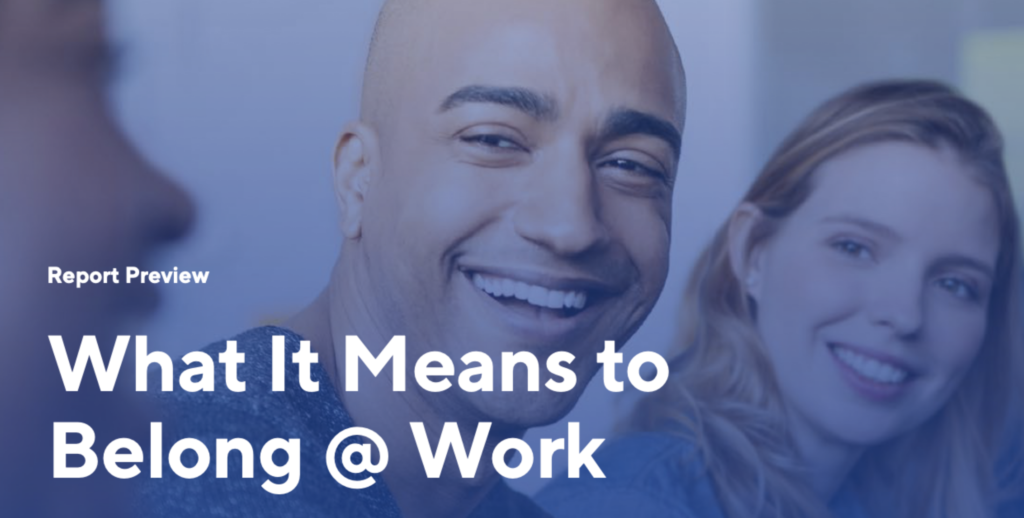M+E Connections

Cognizant, Microsoft Prep ‘What It Means to Belong @ Work’ Report
Story Highlights
Professional services firm Cognizant and Microsoft are gearing up to release a new report in late March, one that examines an often-overlooked question about daily life: what does it actually mean to “belong” in the workplace?
Based on the responses of more than 10,000 workers around the world, the study — “What It Means to Belong @ Work” — sought to find what it means to belong at work, across genders, generations and geographic regions, with six main takeaways.
“Despite “belonging” being a universal human need, though, it is often overlooked by employers — almost as if we believe it happens automatically, without any effort on the employer’s part. In fact, though, belonging needs to be cultivated,” the report reads. “In what ways can we nurture belonging? What are the challenges in doing so?”
Overall, 92% of respondents said it was important to “feel like you are appreciated for who you are and what you can contribute.” And being accepted in the workplace wasn’t just a bonus, it’s critical to an employee’s well-being. “Respondents told us that the feelings generated by being welcomed, included, valued and connected all contribute to their sense of belonging. These feelings are nurtured by work teams and operationalized by specific behavior patterns of leaders and co-workers,” the report reads.
 And while money helps, a sense of belonging could be more valuable than more pay: 62% of respondents said belonging was more important than salary, and that issue was more important for Gen X and Gen Y managers. “For these groups, it’s not enough to have a seat at the table or even to have a voice; it’s about knowing their voice is valued and that they can contribute,” the report reads.
And while money helps, a sense of belonging could be more valuable than more pay: 62% of respondents said belonging was more important than salary, and that issue was more important for Gen X and Gen Y managers. “For these groups, it’s not enough to have a seat at the table or even to have a voice; it’s about knowing their voice is valued and that they can contribute,” the report reads.
The report also found that a sense of belonging is tied to performance: When companies create a culture of belonging, the results can be transformative for employees and the organization. “In our study, respondents reported that fostering a sense of belonging would significantly increase their motivation, commitment, pride, emotional and physical well-being, and overall engagement,” the report reads. “Ultimately, respondents said these feelings of belonging would lead to not just greater innovation but also increased productivity.”
The size of a business didn’t seem to be a factor in developing strong employee bonds, and while digital, remote workplaces are more crucial than ever today, belonging still needs a human face attached to interactions.
“Globally, all generations pointed to the importance of face-to-face communication, underscoring that connections start with a human face,” the report reads. “But 65% of respondents said that technology — broadly — can help facilitate a feeling of connection with co-workers by creating more points of contact between people.”









